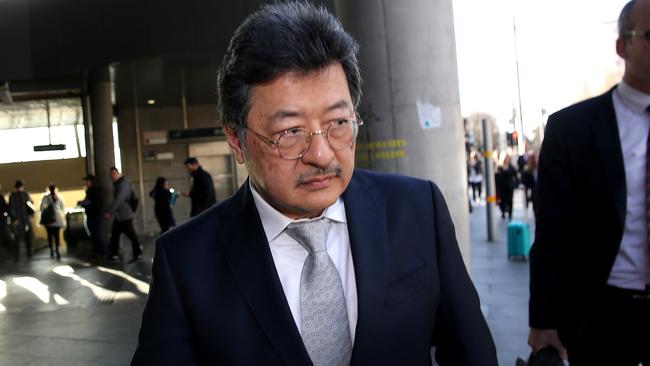Heat on David Teoh over TPG mobile strategy
Mobile was so important to TPG the financial consequences of its hasty plan didn’t matter, court hears.

TPG Telecom founder David Teoh has told the federal court his company rushed its mobile strategy in order to beat Vodafone Hutchison Australia to 4G spectrum and start building an independent mobile network.
Under questioning from the competition regulator’s legal counsel Michael Hodge QC, Mr Teoh conceded that TPG had pushed ahead with its plan to buy the spectrum without a definitive model in place.
The reclusive billionaire returned to the federal court on Thursday, as TPG and Vodafone Australia locked horns with regulator on their stalled $15 billion merger plan.
TPG paid $1.2 billion for 700 Megahertz (MHz) spectrum in April 2017; the purchase being the most expensive if its type in recent history.
But Mr Teoh said he wasn’t overly concerned about paying top dollar for the 4G spectrum, given its strategic importance.
“It was important for the company to get into mobile,” he told the court.
The spectrum, crucial for 4G mobile services, had been left over from the original “digital dividend” auction in 2013.
Vodafone Australia, which decided against participating in the 2013 auction, had pitched a $594 million offer to the federal government in May 2016. The unsolicited bid was firmly rejected.
Mr Teoh said that while TPG was committed to bidding for the 700 MHz spectrum, it did not have a concrete strategy in place. “We didn’t have time to do that, we didn’t have the model,” he said.
Pressed further on whether he had decided to go ahead with the acquisition of spectrum irrespective of its negative consequences, Mr Teoh said he couldn’t recall the exact numbers.
“I can’t remember what happened two years ago, sitting here.”
However, Mr Hodge persisted with his argument that TPG’s mobile aspiration was built almost entirely around offering a competitive 4G network — a fact that explained its decision to splurge on 4G spectrum.
“You knew it was a high price, you knew you were about to pay more than anybody else in the world and it was going to be 4G network,” Mr Hodge said.
The focus on how TPG operates is a crucial part of the Australian Competition and Consumer Commission’s strategy to show that the telco was heavily committed to entering the mobile market, despite the risks.
On Wednesday, Mr Hodge pushed Mr Teoh to reveal how TPG’s mobile plans were developed, why it picked Chinese equipment vendor Huawei to supply the required equipment, and why it stopped rolling out the network.
On Thursday Mr Hodge picked up where he left off, peppering Mr Teoh with questions about the fundamentals of TPG’s model and the market opportunity it had.
According to Mr Hodge, the financial consequences were irrelevant because Mr Teoh wanted to enter the mobile market.
“I reject that,” Mr Teoh retorted.





To join the conversation, please log in. Don't have an account? Register
Join the conversation, you are commenting as Logout